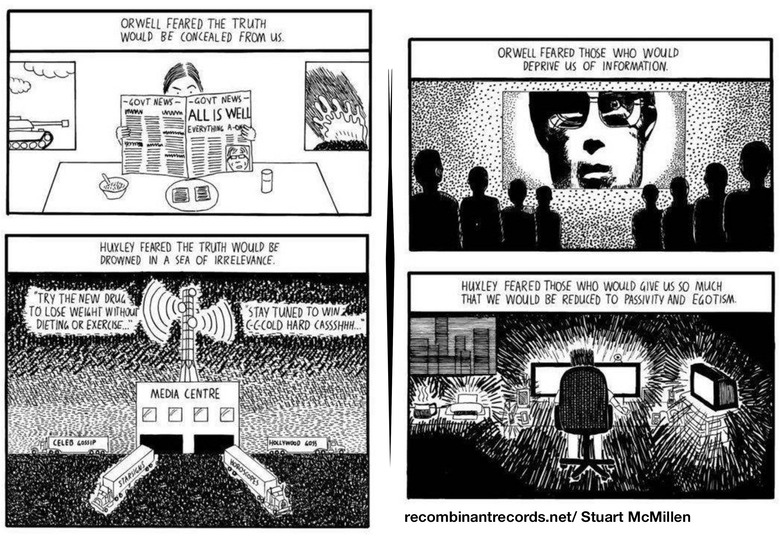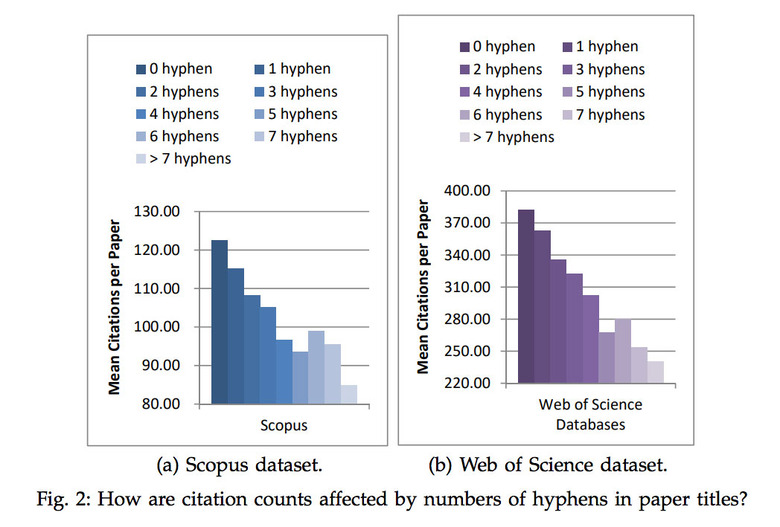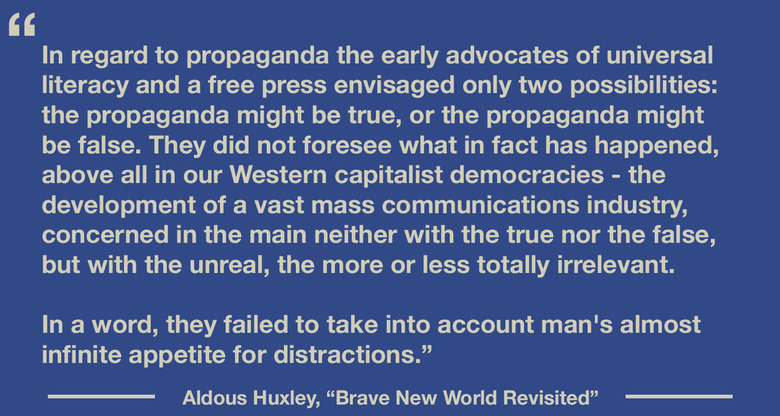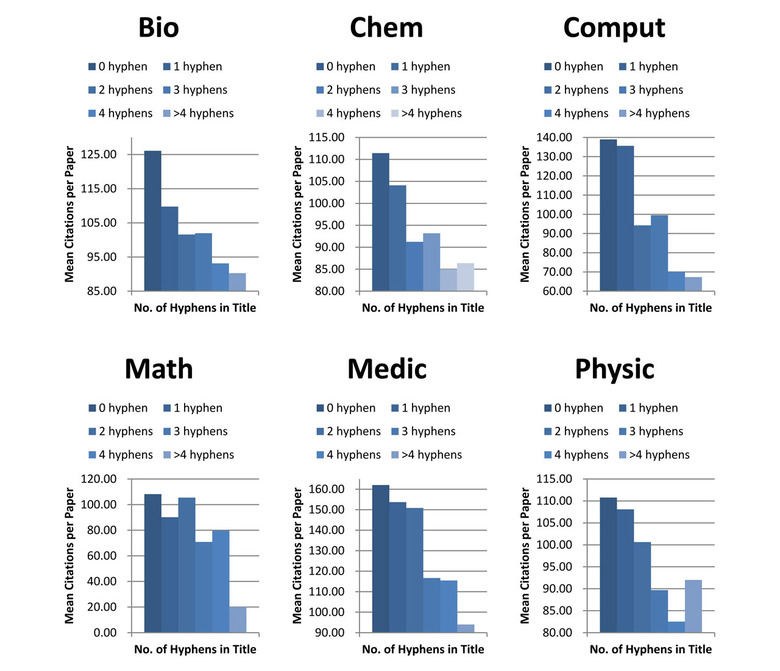Brave New World Predictions Are Coming True With Hyphens
The amount of hyphens in the title of a research paper has a direct effect on the number of times it's cited. The more hyphens in the title, the less likely it was to be cited. Our fears were wrong – we're not living in the future described by the book "1984" (from George Orwell). Instead we're living in "Brave New World", and Aldous Huxley's dystopia is made real.
A Brave New World... but for real
Below you'll see a panel from a comic drawn by Stuart McMillen back in May of 2009. He explained the differences between the futures presented by Huxley and Orwell in Brave New World and 1984.

In Brave New World, we're overrun by messages. With almost endless amounts of data available to us via the internet, television, radio, books, etcetera, it's difficult to see what's important, what matters, or even what's real.
In the research paper published this week by authors Zhi Quan Zhou, T.H. Tse, and Matt Witheridge, it's clear that this Brave New World paradigm has taken deep hold of our society. Such a deep hold the information overload has on our lives that research paper credibility suffers when research paper titles don't lend themselves to easy consumption.

Research shows that the more hyphens a paper has in its title, the fewer times it's cited as a source. At this time, research papers and journals are judged by their citation counts and journal impact factor (JIF).
"A software engineering field-wide study reveals that the higher JIF-ranked journals are publishing a lower percentage of papers with hyphenated titles," wrote Zhi Quan Zhou et. all. "Our results challenge the common belief that citation counts and JIFs are reliable measures of the impact of papers and journals, as they can be distorted simply by the presence of hyphens in paper titles."

Above you'll see a quote from Huxley as written in "Brave New World Revisited." In it, he suggests that our dystopia is made by an overabundance of distractions.
The research on hyphens
The research done by Zhou and crew suggests that research papers and journals are all but ignored once their title contains too many hyphens. Simple, easy-to-consume titles on papers are cited most often. For every subject matter they tested, the results were staggeringly similar.

Because writers (conscious or otherwise) tend to pick simpler titled papers without hyphens over those with multi-hyphenated titles, salesmanship is valued over research content quality.
We experience this in writing articles here on SlashGear every single day, too. For drawing in readers, crafting an appealing title has just as much value as the entire rest of the article – maybe even more.
When our day is an unending barrage of media, our minds are suffocated, and we tend to place value on quantity over quality. We consume constantly-updated streams of media because we have a fear of missing out (FOMO). So we consume as much as we can – but with a limited number of hours in the day, we tend to tap on the content that looks like it'll be quickest to consume.
What can we do to stop this dystopia from happening?
Luckily, people like Zhi Quan Zhou, T.H. Tse, and Matt Witheridge are here to combat the systems which place value on metrics that reward quantity over quality. It's people like this that give me hope that we're not yet entirely lost to the many media machines that consume our lives all day, every single day of the week.
For more information on the hyphen business mentioned above, take a peek at the research paper "Metamorphic Robustness Testing: Exposing Hidden Defects in Citation Statistics and Journal Impact Factors". This paper was authored by Zhi Quan Zhou, T.H. Tse, and Matt Witheridge. You can find this paper with code DOI:10.1109/TSE.2019.2915065 as published by IEEE in May of 2019.
